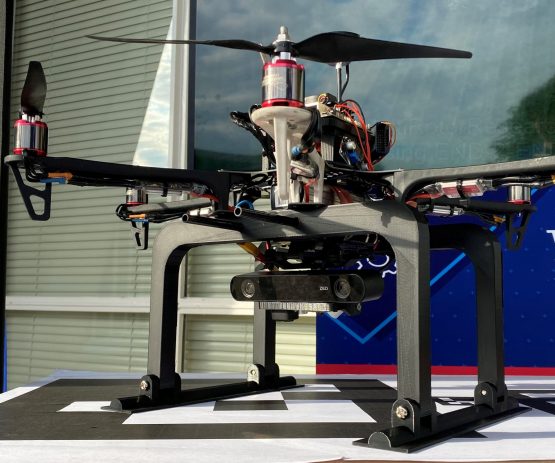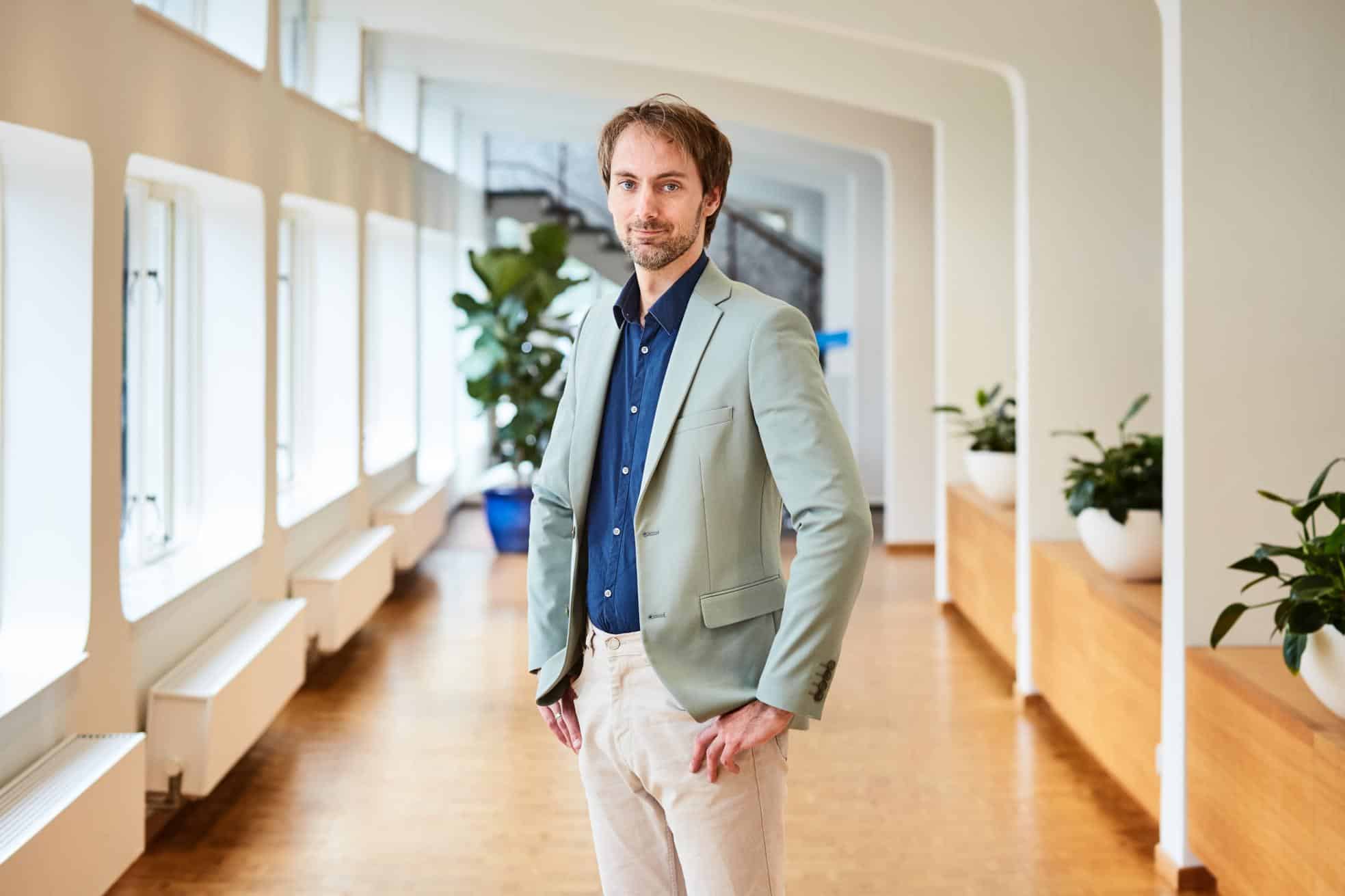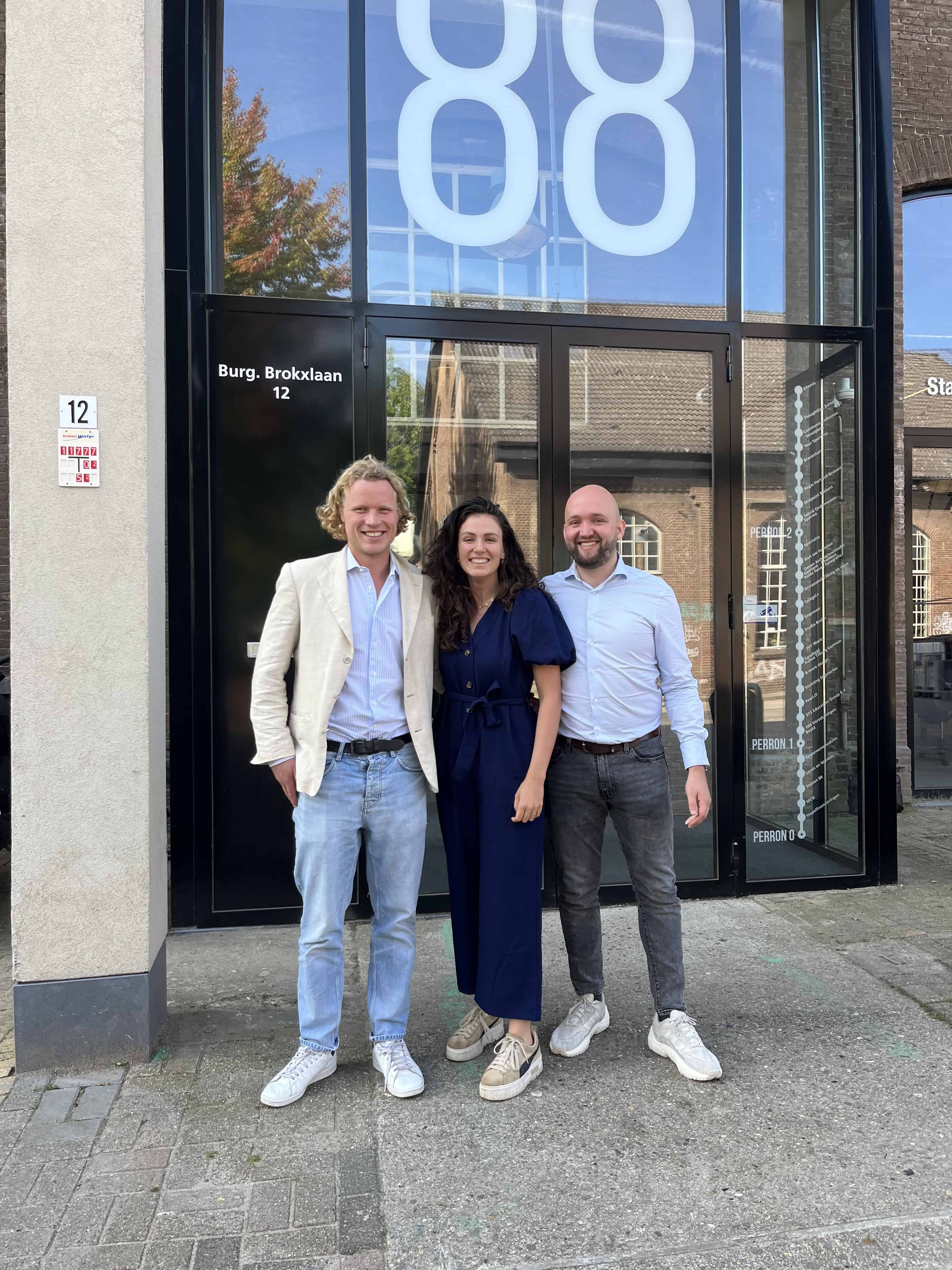
An autonomous drone as eyes in a greenhouse – a drone that measures the way crops are growing. From seed germination to leaf development and from the flowering stage to the diameter of the potted plant. That is what start-up Corvus Drones from the Dutch town of Ede develops and manufactures. “Our dream is that our drone will be flying around in every horticultural greenhouse around the world to monitor plant growth and health,” says Frans-Peter Dechering, co-founder of Corvus Drones. The company participated in the Finnish Slush start-up event last month.
Normally, people are needed to see how crops are growing. “But, it’s impossible to monitor every crop on a daily basis,” Dechering points out. “Growers need to find ways to lower risks to crops and the workforce that is needed. Those are exactly the things we provide information about with our drone.”
Tomato cultivation
Growers and crop specialists at horticultural companies are signing up for Corvus Drones’ drone services. The grower sets out the flight route in a web application, links a task to it, places the drone on the docking station in the greenhouse and presses start. The drone then flies over or between the crops, takes pictures and the software then translates the images into useful information. “Drone navigation is done entirely by sight,” Dechering points out. “Because of the steel construction of the greenhouse, GPS signals are too weak and not usable. This is why the drone has cameras that can look around so that the drone can find its way around the greenhouse.”
Flight route
The drones from Corvus Drones accurately predict harvests. Dechering: “They see three or four weeks ahead how much yield a grower is likely to have. We are in the process of developing the application now. We aim to introduce our service to the market in 2024.”
The start-up also works with breeders in the ornamental plant world. “Global companies that are developing new plant varieties. Seed production is incredibly labor intensive. Employees count the flowers to be able to predict how much seed a grower will have in a few weeks and how many people they need to employ to do that.”
Growers and crop specialists at horticultural companies are signing up for Corvus Drones’ drone services. The grower sets out the flight route in a web application, links a task to it, places the drone on the docking station in the greenhouse and presses start. The drone then flies over or between the crops, takes pictures and the software then translates the images into useful information. “Drone navigation is done entirely by sight,” Dechering points out. “Because of the steel construction of the greenhouse, GPS signals are too weak and not usable. This is why the drone has cameras that can look around so that the drone can find its way around the greenhouse.”
International
Corvus Drones remains the owner of the drones. If a drone breaks down, the grower sends it back. “We repair it. But more importantly, we take back every drone. We reuse, refurbish, recycle and upcycle as much as possible.”
In March, Corvus Drones sold its first drone. The company now has almost 20 customers. “Deliberately a select group, because you always have teething problems in such an early stage. We want to get those out before we venture out all over the world.” Right now its customers are in the Netherlands, Belgium, America, Germany, France and England.
This year, Corvus Drones won the Green House Challenge held by the Delft University of Technology (TU Delft). “The object was to count the number of tomatoes, identify the color and spot any diseases. The award was a recognition of the fact that our autonomous drone works.” In this competition, the start-up beat out 10 international teams.

Think bigger
For Dechering, the Slush start-up event was unfamiliar territory. The start-up was invited to attend by Wageningen University & Research (WUR). Partner Gerhold ten Voorde started the company in 2019. He had also taken part in the WUR accelerator program Start-Life. Dechering joined in 2020. A perfect combination, according to Dechering. “Gerhold as a younger techie and me as an experienced entrepreneur. I handle everything related to customers and money. Gerhold focuses on the technology.”
Dechering and Ten Voorde rally people around them who dare to challenge them. Such as professionals from Startlife, and a horticultural luminary. “They are the ones who show us that we are too modest. They are constantly challenging us to think bigger.”
Corvus Drones recently completed a seed round. “Our confidence is growing, we are raising the bar higher and higher,” he states. The company is growing faster than anticipated. “We want to grow to 25 to 30 people and we already have about 15 employees,” he notes.

Bar of soap
Attending Slush meant an opportunity for the start-up to seek new forms of funding and establish contact with new investors. More than anything, the event was good for spending time with his associate, Dechering comments after the visit. Corvus Drones was part of the Dutch 4TU delegation. “We got some great insights into the importance of a good national start-up environment and approach. Unfortunately, the matchmaking with investors was a bit disappointing.”
Dechering thoroughly enjoys his work and the people he works with. “We have a super cool team. More than half of our people also make drones in their spare time. We also have a table soccer competition. A nice story is that one of our product engineers went to France to work on an implementation. He insisted on being back by five o’clock on Friday afternoon so he could still play in the soccer competition.”
The main challenge for Dechering is to “sell the drone as if you are selling a bar of soap.” “We are not selling technology, but a service. All a customer has to do, so to speak, is just log in and press the start button. We want to make that as simple as possible.”









